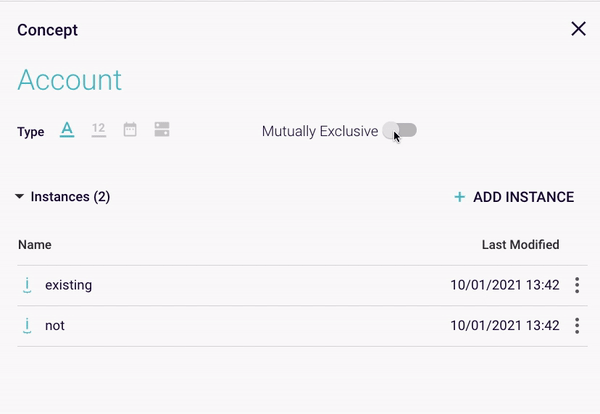To make the concept mutually exclusive, in the “Account” concept, the Mutually Exclusive switch is switched on:

Figure 3: Setting ‘Account’ concept to mutually exclusive
Note: A string concept can only be set as mutually exclusive with two concept instances. The two instances should be contrary to each other (e.g. ‘existing’ or ‘not’). String concepts with more than two instances cannot be mutually exclusive.